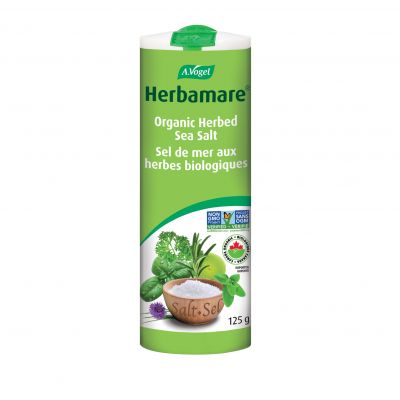What is SIBO (Small Intestinal Bacterial Overgrowth)?
Small Intestinal Bacterial Overgrowth (SIBO) is a condition that affects the microbiota of the intestine. Instead of bacteria living in the large intestine (colon) where it is mainly meant to reside, bacteria proliferate in the small intestine and wreak havoc. That havoc leads to further digestive upset.
To get an idea... there should normally be less than 1000 bacteria/mL in the small intestine. In cases of SIBO the overgrowth can reach up to 100,000 bacteria/mL.
The exponential growth of bacteria in the wrong section of the GI tract may even lead to poor nutrient absorption and develop into co-morbid conditions if left untreated overtime [1]
Risk factors for the development of SIBO
Some may be more susceptible to having SIBO. Included are those with pre-existing health conditions, structural / anatomical issues, motility disorders (poor intestinal motility), organ system dysfunction, the elderly and those who are on certain medications (the recurrent use of prescription antibiotics, PPI's) that alter the gut microflora.
Those with the following conditions may also consider investigating the possibility of SIBO if they are experiencing symptoms that cannot be otherwise explained.
- IBS
- IBD
- Celiac Disease
- Diabetes
- Fibromyalgia
- Obesity
- Parkinson's disease
- Rosacea
What are the symptoms of SIBO?
These are the top ones to look out for:
All too often, IBS is confused with SIBO due to the similarity of their symptoms. I've personally had clients who were suffering from Irritable Bowel Syndrome (IBS) and SIBO simultaneously and were not diagnosed with SIBO due to the similarity of the symptoms. [3]
It's always important to keep in mind that SIBO may present in your digestive tract if you suffer from the following symptoms:
- Chronic diarrhea: Prolonged diarrhea for more than 3 days, including undigested fat (Steatorrhea) and undigested food particles that can be identified in the toilet. Diarrhea might come on quickly after meals as a result of poor digestion due to bacterial overgrowth. If experienced for more than 3 days, it must be addressed by a physician.
- Abdominal pain: Bloating and abdominal pain are other warning signs. Intestinal gas can accumulate and cause bloating. This is often caused by excess dislocated bacteria.
- Symptoms consistent with irritable bowel syndrome: If the diagnosis of Irritable Bowel Syndrome (IBS) is inconclusive, SIBO should be considered immediately and proper testing should be done.
- Nutrient deficiencies: When too many harmful bacteria are present (especially in the wrong segment of the GI tract) the assimilation of nutrients from food is impaired. [4] This happens because the proliferating bacteria release endotoxins. This may result in intestinal permeability and nutrient loss; this barrier prevents nutrients from being absorbed. Anemia, hypocalcemia, osteomalacia and weight loss may be indicative signs of nutrient malabsorption and SIBO.
A person with SIBO may also encounter the following health challenges
- A sensation of abdominal heaviness: inflammation may be present, one may feel constantly full and lack appetite.
- Weakness and fatigue: poor nutrient absorption often manifests by way of fatigue and weakness.
- Difficulty digesting and processing many foods. This indicates that food sensitivities / intolerances may be present.
- Dehydration may occur due to chronic diarrhea.
- Fructose and lactose intolerance
- Deficiency of fat-soluble vitamins including Vitamins A and E
- If one suffers from a chronic or auto-immune conditions, symptoms of SIBO may be exacerbated. [2]
Diagnostic lab tests to determine the presence of SIBO
The current gold standard for the diagnosis of SIBO is one where fluid is aspirated from the small intestine, followed by a culture and bacterial count. However it is not routinely performed because it requires an invasive technique that is quite complex as the small intestine is not an easy place to reach.
Thus, the most commonly used and most easy to apply test is the breath test to measure for bacterial overgrowth.
When SIBO is present, bacteria colonize the small intestine producing hydrogen and methane as a result of metabolic output by the bacteria.
Clinician and patient management of the SIBO patient
Measures taken by skilled clinicians are designed to optimize and manage the symptoms of someone presenting with digestive system challenges:
In general the clinical management of SIBO in patients will involve:
- Dietary interventions as the root/ foundation of addressing symptoms.
- Antimicrobial therapy
- Prokinetic agents
- Addressing and treating comorbid conditions
- Nutrient supplementation
Appropriate supplementation for SIBO
When it comes to choosing the appropriate supplements for SIBO one must consider the goal of the treatment and what needs to be addressed. The protocol must be followed in a very specific order to have an effect.
The body's acid-alkaline equilibrium starts in the colon. Maintaining the proper pH balance in the digestive tract is essential in cases of SIBO as micro-organisms have a reduced chance of thriving and proliferating in an alkaline environment (as opposed to an acidic one).
Molkosan contributes to creating a more inhospitable environment in the GI tract for the harmful bacteria to survive in. The product is fermented by a specific proprietary strain of lactobacillus casei and is a source of lactic acid (L +). A. Vogel's Molkosan (natural or berry flavoured) can help to restore the harmonious balance of healthful bacteria and helping to eliminate harmful bacteria. Rich in potassium, both Molkosan original and Molkosan berry not only taste delicious but are a great source of calcium too (which is one of the macronutrients that may be diminished by poor nutrient absorption).
Lifestyle and dietary changes for the management and prevention of SIBO
These critical improvements must be made in order to stave off the negative impacts of SIBO.
Research shows that the Low FODMAP diet can relieve and decrease the symptoms of irritable bowel syndrome and other associated conditions, and is especially beneficial for the treatment of SIBO. [7]
The Low FODMAP diet consists of reducing the consumption of fermentable compounds such as oligosaccharides, disaccharides, monosaccharides and polyols, thus removing the food supply (substrate) of nutrients from bacteria, and thereby decreasing their growth and proliferation.
It is best to consult with Monash University's Low Fodmap guidelines here if you plan to follow a Low FODMAP diet as it can get very specific in its allowances and exclusion of foods.
Lifestyle Modifications
Additional habits that can be harmful to digestive health should be addressed and managed as well. These include:
- The consumption of alcohol
- Smoking
- Gum chewing
- Over-indulging in sweets
Conclusion
SIBO affects a large part of the population, many of those actively suffering from digestive discomfort and abdominal pain. However most are not able to discover the root cause of their suffering.
Because SIBO can be difficult to diagnose and is not often discussed as an option with their medical practitioners, patients must self-educate and find out their options. It is crucial for patients to identify and acknowledge their digestive symptoms and then seek out measures to test if SIBO is present. This allows for the exclusion of certain other pathologies and also give one the go ahead to begin implementing a protocol to remove SIBO from their digestive tracts and their lives.
References
1. https://www.ncbi.nlm.nih.gov/pmc/articles/PMC2890937/
2. https://www.webmd.com/digestive-disorders/sibo-overview-what-is-it#1
3. https://www.hopkinsmedicine.org/gastroenterology_hepatology/diseases_conditions/small_large_intestine/small-intestinal-bacterial-overgrowth.html
4. https://www.ncbi.nlm.nih.gov/pmc/articles/PMC3099351/#__sec17title
5. https://www.webmd.com/digestive-disorders/sibo-overview-what-is-it#2-5
6. https://www.ncbi.nlm.nih.gov/pmc/articles/PMC3099351/#__sec18title
7. https://www.ncbi.nlm.nih.gov/pubmed/24076059






